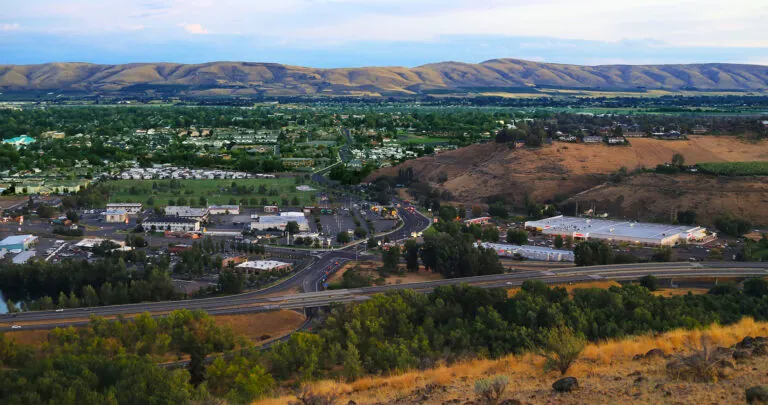Is Weed Legal In Tennessee In 2023? Tennessee Cannabis Laws Explained
The debate surrounding cannabis legalization has gained significant traction in recent years, with numerous states embracing various forms of regulation and decriminalization. However, Tennessee stands as one of the few states that have yet to adopt any form of cannabis legalization. As of 2023, recreational cannabis remains illegal in Tennessee, and the state’s medical cannabis program is among the most restrictive in the nation. This article delves into the complexities of Tennessee’s cannabis laws, providing a comprehensive overview of the current legal landscape and exploring the ongoing efforts to reform cannabis policies in the state.
Tennessee’s Current Cannabis Landscape: A State of Prohibition
In Tennessee, the possession of any amount of cannabis, whether for recreational or medical purposes, is considered a criminal offense. The severity of the penalties depends on the quantity of cannabis involved. Possession of less than half an ounce of cannabis is classified as a misdemeanor, punishable by up to a year in jail and a fine of up to $2,500. Possession of larger quantities carries increasingly severe penalties, with possession of more than 10 ounces of cannabis being considered a felony, punishable by up to six years in prison.
Despite the strict prohibition, a limited exception exists for the use of high-CBD, low-THC cannabis oil. In 2016, Tennessee passed the “Compassionate Care Act,” which allows the use of cannabis oil for the treatment of certain severe medical conditions, including epilepsy and cancer. However, the law imposes stringent requirements on patients, requiring them to obtain a recommendation from a qualified physician and register with the state. Additionally, the law only permits the use of cannabis oil with a THC content below 0.5%, a significantly lower level than what is considered psychoactive.
The Path to Reform: Legislative Efforts and Public Opinion
Despite the current state of prohibition, efforts to reform Tennessee’s cannabis laws continue to gain momentum. In recent years, several bills have been introduced in the Tennessee General Assembly seeking to legalize or decriminalize cannabis. While these bills have not yet passed into law, they reflect a growing shift in public opinion towards cannabis legalization. A recent poll conducted by the Pew Research Center found that a majority of Tennesseans (57%) support the legalization of cannabis for recreational use.
Exploring the Arguments for and against Cannabis Legalization
Proponents of cannabis legalization often cite the potential economic and social benefits, including increased tax revenue, job creation, and reduced crime rates. They also argue that legalization would allow for better regulation and control of cannabis, ensuring product safety and consumer protection. Opponents of legalization, on the other hand, raise concerns about the potential negative impacts on public health, particularly among youth. They also express worries about increased traffic accidents and the potential for cannabis to act as a gateway drug to more harmful substances.
Conclusion: A Glimpse into the Future of Cannabis in Tennessee
The future of cannabis in Tennessee remains uncertain. While the state has yet to embrace any form of legalization, the growing public support for reform and the ongoing legislative efforts suggest that significant changes may be on the horizon. As the debate over cannabis policy continues, it is crucial to engage in informed discussions that consider the potential benefits and risks of legalization, ensuring that decisions are made based on sound evidence and public input.
Read More:
FAQ’s
Q: Is medical cannabis legal in Tennessee?
A: Yes, but with strict limitations. Tennessee’s “Compassionate Care Act” allows the use of high-CBD, low-THC cannabis oil for the treatment of certain severe medical conditions, including epilepsy and cancer. However, the law imposes stringent requirements on patients and only permits the use of cannabis oil with a THC content below 0.5%.
Q: What are the penalties for cannabis possession in Tennessee?
A: The penalties for cannabis possession in Tennessee depend on the quantity of cannabis involved. Possession of less than half an ounce is a misdemeanor, punishable by up to a year in jail and a fine of up to $2,500. Possession of larger quantities carries increasingly severe penalties, with possession of more than 10 ounces of cannabis being considered a felony, punishable by up to six years in prison.
Q: Are there any efforts to legalize cannabis in Tennessee?
A: Yes, several bills have been introduced in the Tennessee General Assembly seeking to legalize or decriminalize cannabis. While these bills have not yet passed into law, they reflect a growing shift in public opinion towards cannabis legalization.
Q: What are the arguments for and against cannabis legalization in Tennessee?
A: Proponents of cannabis legalization often cite the potential economic and social benefits, including increased tax revenue, job creation, and reduced crime rates. They also argue that legalization would allow for better regulation and control of cannabis, ensuring product safety and consumer protection. Opponents of legalization, on the other hand, raise concerns about the potential negative impacts on public health, particularly among youth. They also express worries about increased traffic accidents and the potential for cannabis to act as a gateway drug to more harmful substances.
Q: What is the likelihood of cannabis legalization in Tennessee?
A: The future of cannabis in Tennessee remains uncertain. While the state has yet to embrace any form of legalization, the growing public support for reform and the ongoing legislative efforts suggest that significant changes may be on the horizon. As the debate over cannabis policy continues, it is crucial to engage in informed discussions that consider the potential benefits and risks of legalization, ensuring that decisions are made based on sound evidence and public input.







